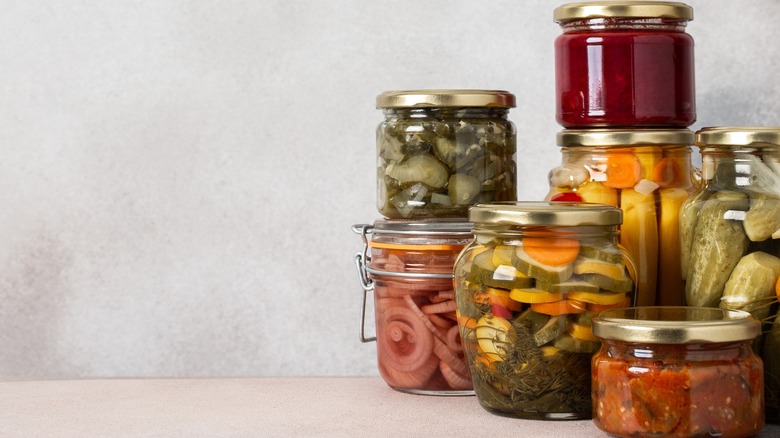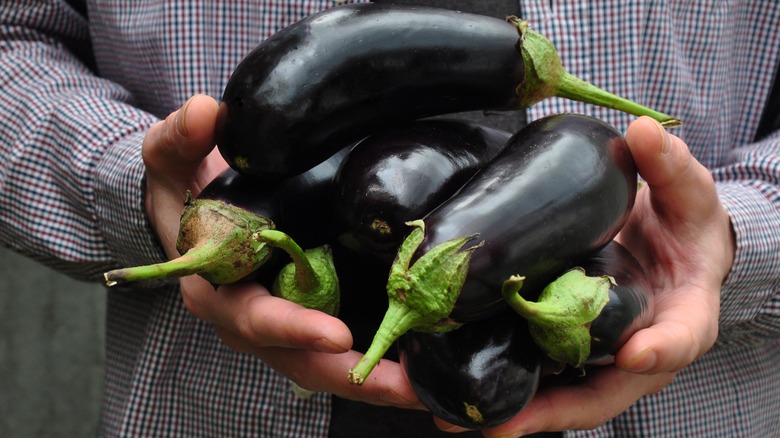Why You May Want To Leave This 1920s Canned Eggplant Recipe In The Past
Stuff it, grill it, or sauté it, just don't preserve eggplant. In the 1920s, Ball Blue released a cookbook geared towards canning foods, which included a recipe for preserved eggplant(via Iowa Digital Library). After boiling and blanching, sliced eggplant was meant to be packed into the company's glass jars, filled with a salty solution, and given a two-hour water bath. However, it wasn't long before the recipe's safety was called into question.
From the striped Graffiti to the meaty Globe and slender Chinese varieties, there are a plethora of eggplant cultivars. Though they each boast a unique aesthetic and taste, most tend to be sweet with a touch of vegetal bitterness. Used in cuisines across the globe, the vegetables are also quite rich in nutrients. In fact, Healthline explains that eggplants contain a significant amount of anthocyanins, which give the veggie color and antioxidant properties like reducing inflammation and supporting cardiovascular health.
While no one would blame you for wanting to take advantage of local bounty and preserve all that eggplant goodness in a jar, it's probably best that you leave canned eggplant in the past.
Eggplant is a low acid food, making it risky to can
Unless you have a pressure canner, it's likely that your home canning endeavors involve the boiling water method, which is great for jars of jam and pickled vegetables — mainly because of the high acidity of these foods. According to America's Test Kitchen, low acid foods like eggplant have a pH level above 4.6 that can support the production of anaerobic bacteria in a low-oxygen environment like a sealed jar, even after a boiling water bath. But, this risk of this bacteria isn't something to be taken lightly, as the consequences can be deadly.
Unable to be detected through sight, smell, or taste, the WHO explains that these toxic spores can cause botulism, which can attack the body's nerves and ultimately lead to death, if not promptly treated. While it's best to leave preserving eggplants to the professionals, there are some alternatives to extend the shelf life of eggplant ever so slightly. For instance, you can make jars of quick-pickled or confited eggplant that'll last for up to one week in the fridge (via Epicurious). Of course, the safest option is to simply enjoy fresh eggplant immediately — say, as part of a meat-free carpaccio recipe.

